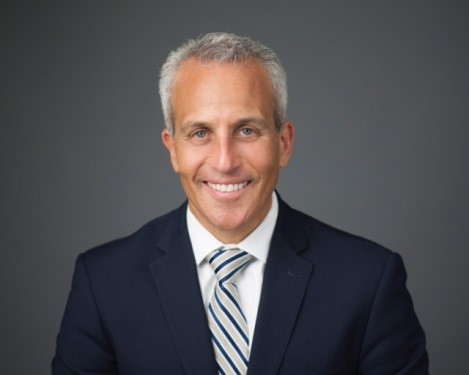ATD Blog
Advancing Talent Development in Healthcare: A Q&A With Scott Kashman
Fri Oct 01 2021

ATD Talent Development and Training in Healthcare Handbook (ATD Press, November 2021) addresses the many opportunities and challenges TD professionals face in the growing and rapidly changing healthcare space. Effective talent development is the thread that weaves through an entire healthcare organization to ensure it is up to standard with the latest practices in treating patients while providing a safe and engaging environment for staff. TD professionals have the unique role of tying together organizational and employee advancement in healthcare systems—and likewise, this handbook dives into areas for business and professional evolution.
Written by 25 fellow healthcare practitioners with extensive experience in the field—from nurses, physicians, and administrators to instructional designers, chief learning officers, technology experts, and leaders across the industry—the book covers six key themes across 26 chapters:
Learning and development basics
Organization development
Employee development
Business acumen for the health system
Digital transformation and literacy
Patient-centric care
Learn more about Scott Kashman, market president for St. Dominic’s and the Franciscan Missionaries of our Lady Health System (Jackson Market), and his chapters on leadership development, business acumen, and well-being in this spotlight Q&A.

How have your experience(s) in leadership development, business acumen, and well-being shaped the best practices you shared?
Leading with a strategic lens, being grounded in operations with the support of a healthy team provides a balanced leadership approach. Based upon experience, I find these three need to stay in harmony or else an organization will achieve inconsistent performance and team engagement.
Leaders should engage the hearts and mind of their team by providing a clear vision and sharing the importance, purpose, and why behind the vision. Then they should step back, trust, empower, and support their team as they develop plans and achieve the collective goals. While it sounds basic, it is not always practiced consistently. If you re-enforce how much the team is valued, cared for, and connected, you will unleash the full potential of your organization.
How do you foresee advancement of talent development in these areas within healthcare? (i.e. in an ideal world, how do you see this area flourishing for employee or organizational development)?
Developing talent takes an ongoing commitment by healthcare leaders and organizational development specialists. Ensure leaders know how to coach other leaders and staff. Many leaders mentor others by telling them about their own experiences and having others shadow them. Learning to be leader-coach takes a different skill: being present and focused on the person you are developing. By asking questions, staying curious, and allowing others to find the answers within, you will create the necessary bandwidth to solve for new and emerging opportunities.
What is something unexpected you learned while working on this book?
Through this process, I had a chance to connect with other authors. It broadened my understanding of the many facets that contribute to talent development. I appreciated learning from my colleagues and applying these skills within my own leadership practice.
Is there something professional or personal you are proud of accomplishing in the past year?
Holding space for others to develop personally and professionally. Completing a coaching certification through the NeuroLeadership Institute helped me think differently about how to coach and develop others. For more than a year I was fortunate to develop a strong, healthy leadership team across my previous health system. This served as a foundation of collaboration and trust as we opened our incident command in March 2020 and started navigating through the pandemic. At the same time, we engaged our community partners and internal team to advance our quality, safety, and overall performance.
What is a fun fact about yourself or one sentence of advice you’d like to share?
Start with self. In the past, I ran many marathons, counseled patients as a psychiatric counselor, joined an improv comedy troupe, and worked on stage at a karaoke bar (and I’m a terrible singer). Each of these experiences shaped my leadership, focused on humility, strategy, operations, and the health of a team.
